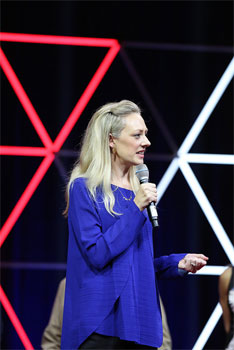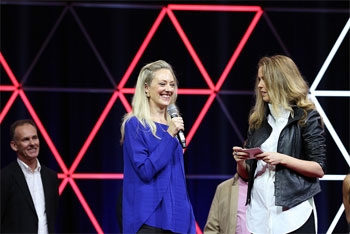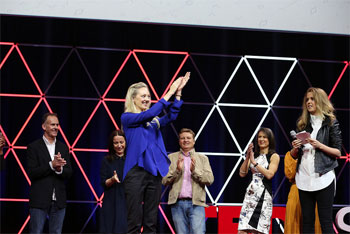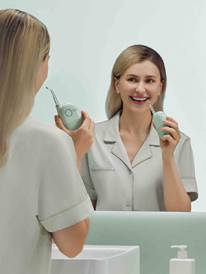Annalies Corse Fourth Trimester Interview

Annalies Corse Fourth Trimester Interview
Australian College of Natural Therapies lecturer Annalies Corse's recent talk at TEDx Sydney on pregnancy's proposed -fourth trimester' suggests we should bring back the idea of -it takes a village to raise a child'.
A graduate in naturopathy, herbal medicine and medical science, Annalies was one of just seven speakers chosen from more than 100 delegate entries to speak during the Fast Ideas section at TEDx Sydney.
Discussing the challenges highly unprepared first-time parents face in their -fourth trimester', after childbirth, Annalies suggested to the TEDx Sydney audience that to tackle the losses of independence, identity and sleep deprivation experienced by new parents, we should establish -fourth trimester communities' to focus on the nutritional, physical and mental health of the entire family unit.
'It takes a village to raise a child…yet modern parents are working without a village. It's time to build that village again," said Annalies.
Originally a medical scientist working in hospital settings, Annalies decided to pursue her passion for nutritional medicine by studying a Bachelor of Health Science specialising in Naturopathy. Since 2008 she has lectured at the Faculty of Health Sciences at the Australasian College of Natural Therapies, part of the Laureate International Universities group and where she was a graduate.
'Annalies has always thought outside of the box, and this innovative take on pregnancy and parenting is just one example of how academic staff at ACNT, Torrens University Australia and other schools and colleges which are a part of the global Laureate International Universities network, inspire students to think creatively about established structures," added Professor Justin Beilby, Vice Chancellor, Torrens University Australia.
 Interview with Annalies Corse, Australian College of Natural Therapies lecturer
Interview with Annalies Corse, Australian College of Natural Therapies lecturer
Question: What inspired your fourth trimester idea?
Annalies Corse: It was a combination of three things. Firstly, becoming a first time parent myself. My son is now two and a half. Secondly, my study and lecturing role at the Australasian College of Natural therapies (ACNT). Thirdly, seeing the struggles of new parents first hand. There is support out there, but it's often hidden or only accessed when something dire happens. I'd like to see a more proactive or preventive approach when it comes to issues faced when a new family is created, be it the first baby or those born as siblings.
Question: Can you talk us through how this proposed fourth trimester would work?
Annalies Corse: My idea originally started from a conference talk on how mothers can support themselves nutritionally for birth recovery and extended breast feeding. This recovery goes well beyond the traditional six-week post-natal phase. My Naturopathic education at ACNT and elsewhere, and my own experience as a mother made me realise we don't have a properly established fourth trimester in primary medical care. I believe well-educated and clinically experienced complementary medicine practitioners are very well placed to support health for the family in the fourth trimester, however long it lasts. To see it as part of primary care would be amazing. To see society taking up the idea to help re-create the idea of a village (with a modern twist) would be ideal. Big ideas, but they can all start somewhere.
Question: Would this fourth trimester only be for first-time parents?
Annalies Corse: No, not at all. Some couples and families can face difficulties with any new baby. Every birth is different, every child is different and every new life phase is different. It is always about offering support and adapting to change. If parents have introduced second, third, fourth (or more) children to their family, there can be a perception by family, friends or greater society that their need for support might be less, as they have had children before. This is not always the case.
Question: How would a fourth trimester help highly unprepared parents?
Annalies Corse: I believe it would provide the missing link that exists after the birth of a baby. There is a huge void that parents face when they are away from family, friends and regular social interactions. There are lots of checks offered by midwives, OB/GYN's in the first 6-8 weeks after a baby arrives. After this, support is far less. It may involve Paediatricians if a baby is quite unwell, but that is all usually. There is VERY little support for new fathers in the wider community. There is very little health information on the longer-term birth recovery for mothers. Having a more established fourth trimester idea would certainly help.
Question: What challenges are unprepared first-time parents facing?
Annalies Corse: Every parent's experience will be different. The things that I found to be totally unexpected were the loss of independence, social isolation and the physical effects of sleep deprivation (which can wreak havoc on your health). Depending on your situation, factors such as identity can be challenged if you become a full-time parent. If your children attend day care, you will have to deal with a lot of frequent, minor illnesses that often affect the whole family. I feel very fortunate to have my background in health. Studying and lecturing in medical/health sciences at ACNT was a great asset. I often wonder how I would have supported my family's health if I did not know what I know! Physical, nutritional and mental health are important for EVERY member of the new family unit in the fourth trimester.
Question: How can the 'village" help first-time parents?
Annalies Corse: Anyone can be part of a village. You may be a barista or café owner offering space to a breastfeeding mother (huge business potential here for café owners!) You might be the friend or work colleague of a new parent who offers to cook a meal and drop it over to a new parent's home, or cook dinner for them at home. This allows a break for parents and some much-needed social interaction. Getting out with babies does happen, but it can be hard at times. Ask your friends or family with young kids what you can do to help. You might take their kids out for an hour or play with them at home while the couple or parent go out or take an extra-long shower! Re-creating the 'village' does not mean moving in with a new family. I like to think of creating moments called 'village moments'. Obviously, all new parents differ in what they may need. Keep offering support, as many parents don't ask or they stop asking after a time, even when they are desperate for support. These village moments are often appreciated by parents of toddlers and young kids…not just newborn babies.
Question: What advice do you have for sleep deprivation experienced by new parents?
Annalies Corse: A lot of people say "sleep when the baby sleeps" but that does not work for people who feel worse after a day sleep. It may work well in the early days when your baby often takes long day sleeps and you are happy to get sleep where you can. In the longer term, you need to focus on recovering your energy, not expending it. First and foremost, your diet is key. Studying/lecturing at ACNT and working as a Naturopath has taught me that new parents must get this right. Don't start any harsh, overly restrictive diets. Don't commit to harsh/punishing exercise regimes. Your diet should be inclusive, introducing energy in the form of high quality food. Gentle exercise is fantastic and will help you feel more energetic, it won't deplete you. Coffee tends to be a feature! Limiting to one a day is fine, but if you are relying on more than one, you should seek professional health guidance. Speaking from a biochemical perspective, coffee does not actually provide us with energy. You are going to be exhausted, but it can be buffered with nutritional and herbal medicine. Early nights are to be embraced.
Question: What was it like presenting a talk at TEDx Sydney?
Annalies Corse: It was amazing! I sent an entry into the Fast Ideas section during my toddler free work time. The email popped up in my inbox, then I entered on a total whim! I never prepared to enter, and I was chosen as one of seven finalists from over 100 entries. Our curator (Katherine Lim), our host (Sinead McDevitt) and the TEDxSydney curator (Fenella Kernebone) were all very organised, supportive, super professional and lots of fun. What I have always loved about TED talks is that it's always about the idea, not the person wanting to talk about themselves or their brand. TEDxSydney is a huge production on a huge scale. I'm very grateful for the opportunity and that people are still interested in hearing more about this idea in the weeks after the event.
 Question: Can you tell us about your role at Australian College of Natural Therapies?
Question: Can you tell us about your role at Australian College of Natural Therapies? Annalies Corse: I attended ACNT as a student from 2003-2006 and graduated with a Bachelor of Health Science. Previous to this, I obtained a Bachelor of Medical Science degree and have worked as both a medical scientist and a Naturopath. I was invited back to ACNT as a lecturer in 2008. I love this role. I lecture in the medical sciences, biochemistry and nutritional biochemistry, as well as clinical supervision. Bringing my medical science experience to the students is important to me. Naturopathy is far more scientific than people believe. I see it as my role to pass this knowledge on to our students. It is an amazing place to work and study.
Question: What do you hope to achieve with the fourth trimester?
Annalies Corse: I would love to see fourth trimester villages appearing! I'd love for businesses, friends and past work colleagues to all be involved, not just midwives and community centres. It really does not take up much time. You are simply being a good friend or human by helping a new little family. It may seem like nothing, but a simple conversation can be just what new parents need. I am also hoping to leverage this idea through my lecturing, to spread the word as far as possible. Nutritional, physical and mental health are important for all of us, but the phase of life when families are new and young is a vulnerable time.
Interview by Brooke Hunter
Photography: Katie Barget and Enzo Amato
MORE
- Midwife Cath Interview
- Colin Anson Interview
- Why Good Health is Essential to Increase Fertility
- 5 Beauty Products to Avoid When You are Pregnant
- Looking After You, Looking After Your Baby
- Andre Carvalho International Pregnancy and...
- NRL Player v Mums
- Safer Internet Day
- The Pink Elephants Support
- Edwina Sharrock Birth Beat Interview
- Make Mums Group Dad-Friendly



